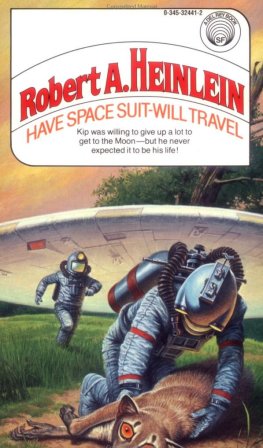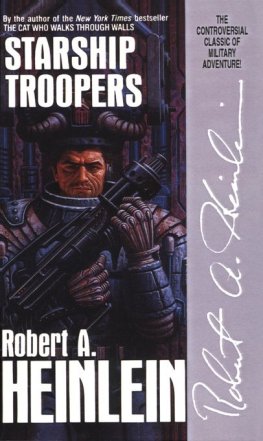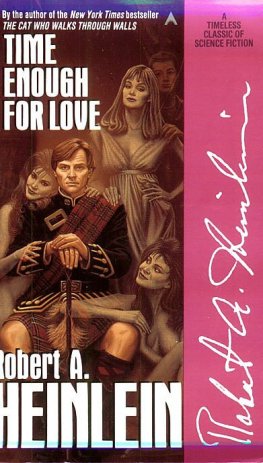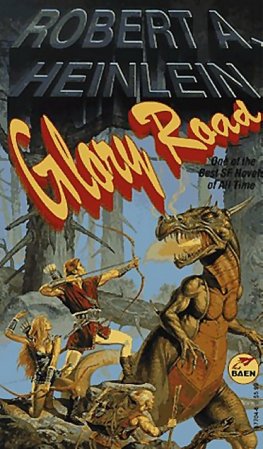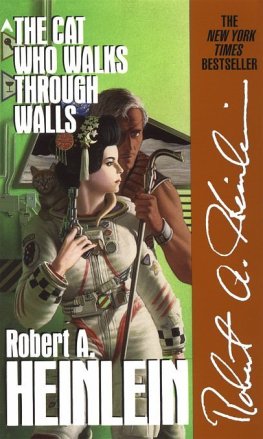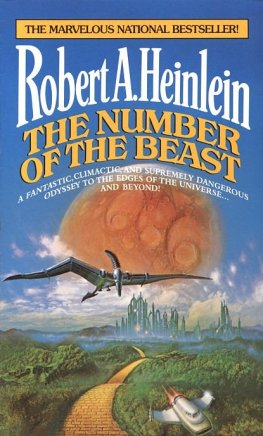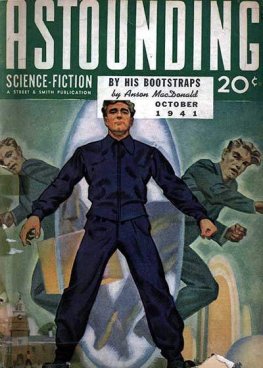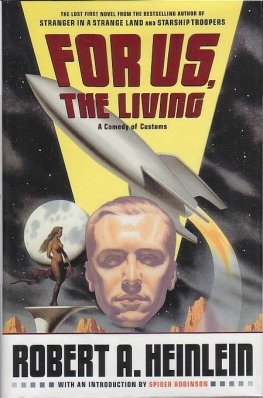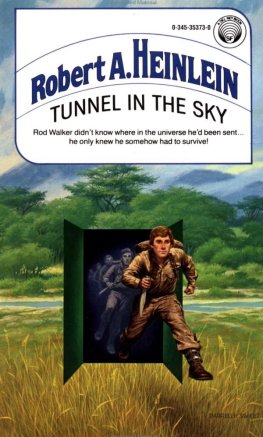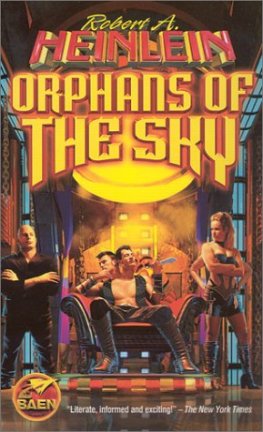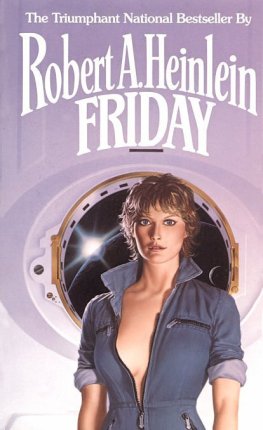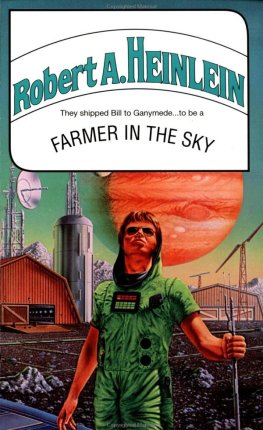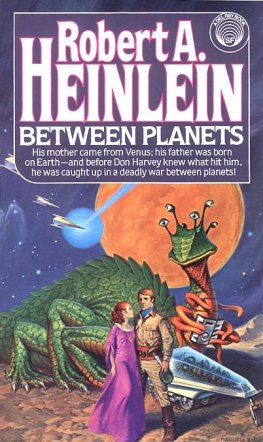Robert Heinlein - Have Space Suit - Will Travel
Here you can read online Robert Heinlein - Have Space Suit - Will Travel full text of the book (entire story) in english for free. Download pdf and epub, get meaning, cover and reviews about this ebook. genre: Science fiction. Description of the work, (preface) as well as reviews are available. Best literature library LitArk.com created for fans of good reading and offers a wide selection of genres:
Romance novel
Science fiction
Adventure
Detective
Science
History
Home and family
Prose
Art
Politics
Computer
Non-fiction
Religion
Business
Children
Humor
Choose a favorite category and find really read worthwhile books. Enjoy immersion in the world of imagination, feel the emotions of the characters or learn something new for yourself, make an fascinating discovery.
- Book:Have Space Suit - Will Travel
- Author:
- Genre:
- Rating:3 / 5
- Favourites:Add to favourites
- Your mark:
- 60
- 1
- 2
- 3
- 4
- 5
Have Space Suit - Will Travel: summary, description and annotation
We offer to read an annotation, description, summary or preface (depends on what the author of the book "Have Space Suit - Will Travel" wrote himself). If you haven't found the necessary information about the book — write in the comments, we will try to find it.
Have Space Suit - Will Travel — read online for free the complete book (whole text) full work
Below is the text of the book, divided by pages. System saving the place of the last page read, allows you to conveniently read the book "Have Space Suit - Will Travel" online for free, without having to search again every time where you left off. Put a bookmark, and you can go to the page where you finished reading at any time.
Font size:
Interval:
Bookmark:
Robert A. Heinlein
Have Space Suit - Will Travel
Chapter 1
You see, I had this space suit.
How it happened was this way:
"Dad," I said, "I want to go to the Moon."
"Certainly," he answered and looked back at his book. It was Jerome K. Jerome's Three Men in a Boat, which he must know by heart.
I said, "Dad, please! I'm serious."
This time he closed the book on a finger and said gently, "I said it was all right. Go ahead."
"Yes ... but how?"
"Eh?" He looked mildly surprised. "Why, that's your problem, Clifford."
Dad was like that. The time I told him I wanted to buy a bicycle he said, "Go right ahead," without even glancing up-so I had gone to the money basket in the dining room, intending to take enough for a bicycle. But there had been only eleven dollars and forty-three cents in it, so about a thousand miles of mowed lawns later I bought a bicycle. I hadn't said anymore to Dad because if money wasn't in the basket, it wasn't anywhere; Dad didn't bother with banks-just the money basket and one next to it marked "UNCLE SAM," the contents of which he bundled up and mailed to the government once a year. This caused the Internal Revenue Service considerable headache and once they sent a man to remonstrate with him.
First the man demanded, then he pleaded. "But, Dr. Russell, we know your background. You've no excuse for not keeping proper records."
"But I do," Dad told him. "Up here." He tapped his forehead.
"The law requires written records."
"Look again," Dad advised him. "The law can't even require a man to read and write. More coffee?"
The man tried to get Dad to pay by check or money order. Dad read him the fine print on a dollar bill, the part about "legal tender for all debts, public and private."
In a despairing effort to get something out of the trip he asked Dad please not to fill in the space marked "occupation" with "Spy."
"Why not?"
"What? Why, because you aren't-and it upsets people."
"Have you checked with the F.B.I.?"
"Eh? No."
"They probably wouldn't answer. But you've been very polite. I'll mark it Unemployed Spy.' Okay?"
The tax man almost forgot his brief case. Nothing fazed Dad, he meant what he said, he wouldn't argue and he never gave in. So when he told me I could go to the Moon but the means were up to me, he meant just that. I could go tomorrow-provided I could wangle a billet in a space ship.
But he added meditatively, "There must be a number of ways to get to the Moon, son. Better check em all. Reminds me of this passage I'm reading. They're trying to open a tin of pineapple and Harris has left the can opener back in London. They try several ways." He started to read aloud and I sneaked out-I had heard that passage five hundred times. Well, three hundred.
I went to my workshop in the barn and thought about ways. One way was to go to the Air Academy at Colorado Springs-if I got an appointment, if I graduated, if I managed to get picked for the Federation Space Corps, there was a chance that someday I would be ordered to Lunar Base, or at least one of the satellite stations.
Another way was to study engineering, get a job in jet propulsion, and buck for a spot that would get me sent to the Moon. Dozens, maybe hundreds, of engineers had been to the Moon, or were still there-for all sorts of work: electronics, cryogenics, metallurgy, ceramics, air conditioning, as well as rocket engineering.
Oh, yes! Out of a million engineers a handful got picked for the Moon. Shucks, I rarely got picked even playing post office.
Or a man could be an M.D., or a lawyer, or geologist, or toolmaker, and wind up on the Moon at a fat salary-provided they wanted him and nobody else. I didn't care about salary-but how do you arrange to be number one in your specialty?
And there was the straightforward way: trundle in a wheelbarrow of money and buy a ticket.
This I would never manage-I had eighty-seven cents at that moment -but it had caused me to think about it steadily. Of the boys in our school half admitted that they wanted to space, half pretended not to care, knowing how feeble the chances were-plus a handful of creeps who wouldn't leave Earth for any reason. But we talked about it and some of us were determined to go. I didn't break into a rash until American Express and Thos. Cook & Son announced tourist excursions.
I saw their ads in National Geographic while waiting to have my teeth cleaned. After that I never was the same.
The idea that any rich man could simply lay cash on the line and go was more than I could stand. I just had to go. I would never be able to pay for it-or, at least, that was so far in the future there was no use thinking about it. So what could I do to be sent?
You see stories about boys, poor-but-honest, who go to the top because they're smarter than anyone in the county, maybe the state. But they're not talking about me. I was in the top quarter of my graduating class but they do not give scholarships to M.I.T. for that-not from Centerville High. I am stating a fact; our high school isn't very good. It's great to go to-we're league champions in basketball and our square-dance team is state runner-up and we have a swell sock hop every Wednesday. Lots of school spirit.
But not much studying.
The emphasis is on what our principal, Mr. Hanley, calls "preparation for life" rather than on trigonometry. Maybe it does prepare you for life; it certainly doesn't prepare you for CalTech.
I didn't find this out myself. Sophomore year I brought home a questionnaire cooked up by our group project in "Family Living" in social studies. One question read: "How is your family council organized?"
At dinner I said, "Dad, how is our family council organized?"
Mother said, "Don't disturb your father, dear."
Dad said, "Eh? Let me see that."
He read it, then told me to fetch my textbooks. I had not brought them home, so he sent me to school to get them. Fortunately the building was open-rehearsals for the Fall Blow-Out. Dad rarely gave orders but when he did he expected results.
I had a swell course that semester-social study, commercial arithmetic, applied English (the class had picked "slogan writing" which was fun), handicrafts (we were building sets for the Blow-Out), and gym-which was basketball practice for me; I wasn't tall enough for first team but a reliable substitute gets his varsity letter his senior year. All in all, I was doing well in school and knew it.
Dad read all my textbooks that night; he is a fast reader. In social study I reported that our family was an informal democracy; it got by-the class was arguing whether the chairmanship of a council should rotate or be elective, and whether a grandparent living in the home was eligible. We decided that a grandparent was a member but should not be chairman, then we formed committees to draw up a constitution for an ideal family organization, which we would present to our families as the project's findings.
Dad was around school a good bit the next few days, which worried me -when parents get overactive they are always up to something.
The following Saturday evening Dad called me into his study. He had a stack of textbooks on his desk and a chart of Centerville High School's curriculum, from American Folk Dancing to Life Sciences. Marked on it was my course, not only for that semester but for junior and senior years the way my faculty advisor and I had planned it.
Dad stared at me like a gentle grasshopper and said mildly, "Kip, do you intend to go to college?"
"Huh? Why, certainly, Dad!"
"With what?"
I hesitated. I knew it cost money. While there had been times when dollar bills spilled out of the basket onto the floor, usually it wouldn't take long to count what was in it. "Uh, maybe I'll get a scholarship. Or I could work my way."
Font size:
Interval:
Bookmark:
Similar books «Have Space Suit - Will Travel»
Look at similar books to Have Space Suit - Will Travel. We have selected literature similar in name and meaning in the hope of providing readers with more options to find new, interesting, not yet read works.
Discussion, reviews of the book Have Space Suit - Will Travel and just readers' own opinions. Leave your comments, write what you think about the work, its meaning or the main characters. Specify what exactly you liked and what you didn't like, and why you think so.

